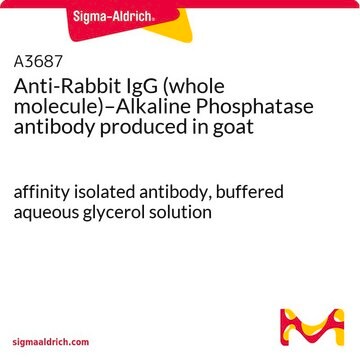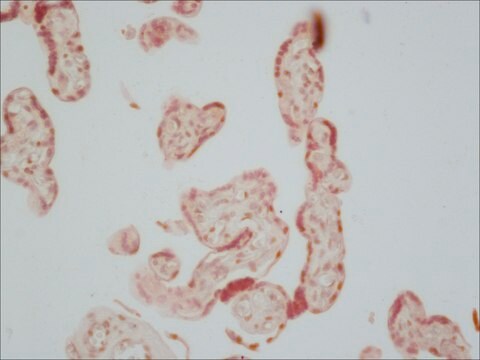A7827
Alkaline Phosphatase-Anti-Alkaline Phosphatase antibody produced in mouse
clone AP1B9, purified immunoglobulin, buffered aqueous solution
Sinónimos:
APAAP
About This Item
Productos recomendados
biological source
mouse
antibody form
purified immunoglobulin
antibody product type
primary antibodies
clone
AP1B9, monoclonal
description
Concentrate
form
buffered aqueous solution
technique(s)
immunohistochemistry (formalin-fixed, paraffin-embedded sections): 1:40 using human tonsil
isotype
IgG1
shipped in
wet ice
storage temp.
2-8°C
target post-translational modification
unmodified
General description
Application
- Immunohistological analysis
- Immunohistochemistry assay
- Immunocytochemical staining
Biochem/physiol Actions
Physical form
Disclaimer
¿No encuentra el producto adecuado?
Pruebe nuestro Herramienta de selección de productos.
Storage Class
10 - Combustible liquids
wgk_germany
nwg
flash_point_f
Not applicable
flash_point_c
Not applicable
Certificados de análisis (COA)
Busque Certificados de análisis (COA) introduciendo el número de lote del producto. Los números de lote se encuentran en la etiqueta del producto después de las palabras «Lot» o «Batch»
¿Ya tiene este producto?
Encuentre la documentación para los productos que ha comprado recientemente en la Biblioteca de documentos.
Nuestro equipo de científicos tiene experiencia en todas las áreas de investigación: Ciencias de la vida, Ciencia de los materiales, Síntesis química, Cromatografía, Analítica y muchas otras.
Póngase en contacto con el Servicio técnico






